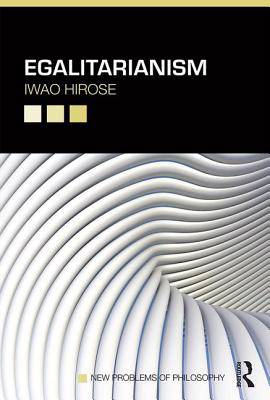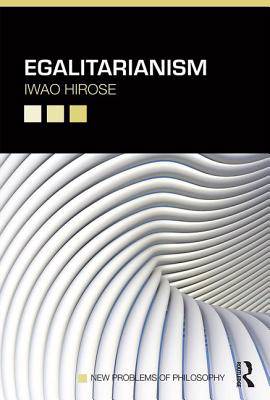
- Afhalen na 1 uur in een winkel met voorraad
- Gratis thuislevering in België vanaf € 30
- Ruim aanbod met 7 miljoen producten
- Afhalen na 1 uur in een winkel met voorraad
- Gratis thuislevering in België vanaf € 30
- Ruim aanbod met 7 miljoen producten
Omschrijving
Some people are worse off than others. Does this fact give rise to moral concern? Egalitarianism claims that it does, for a wide array of reasons. It is one of the most important and hotly debated problems in moral and political philosophy, occupying a central place in the work of John Rawls, Thomas Nagel, G. A. Cohen and Derek Parfit. It also plays an important role in practical contexts such as the allocation of health care resources, the design of education and tax systems, and the pursuit of global justice.
Egalitarianism is a superb introduction to the problem of contemporary egalitarian theories. It explains how rival theories of egalitarianism evaluate distributions of people's well-being, and carefully assesses the theoretical structure of each theory. It also examines how egalitarian theories are applied to the distribution of health and health care, thus bringing a deceptively complex philosophical debate into clear focus. Beginning with a brief introduction to basic terminology, Iwao Hirose examines the following topics:
- Rawlsian egalitarianism
- luck egalitarianism
- telic egalitarianism
- prioritarianism
- sufficientarianism
- equality and time
- equality in health and health care.
Including chapter summaries, annotated further reading and a glossary, this is an ideal starting point for anyone studying distributive justice for the first time, and will also be of interest to more advanced students and researchers in philosophy, economics, political theory, public policy, and public health.
Specificaties
Betrokkenen
- Auteur(s):
- Uitgeverij:
Inhoud
- Aantal bladzijden:
- 208
- Taal:
- Engels
- Reeks:
Eigenschappen
- Productcode (EAN):
- 9780415783194
- Verschijningsdatum:
- 22/06/2014
- Uitvoering:
- Paperback
- Formaat:
- Trade paperback (VS)
- Afmetingen:
- 150 mm x 229 mm
- Gewicht:
- 376 g

Alleen bij Standaard Boekhandel
Beoordelingen
We publiceren alleen reviews die voldoen aan de voorwaarden voor reviews. Bekijk onze voorwaarden voor reviews.











